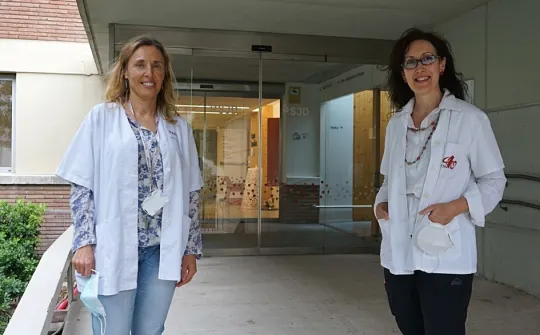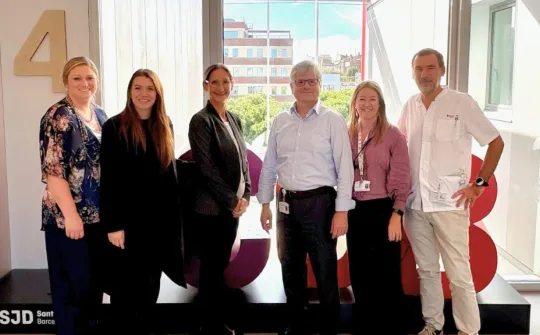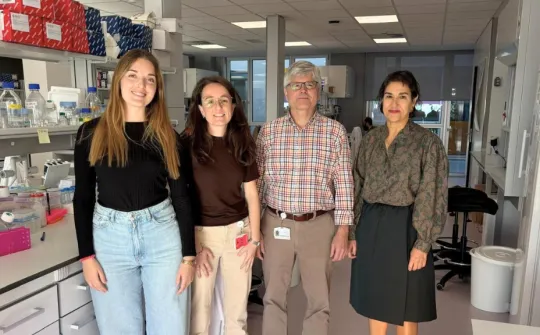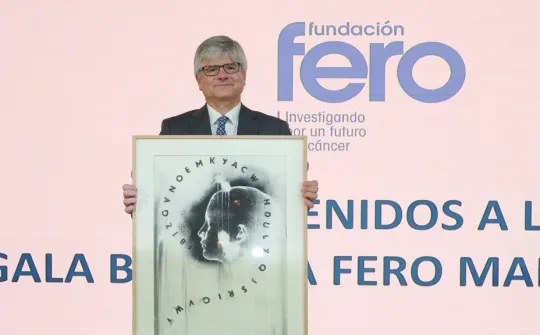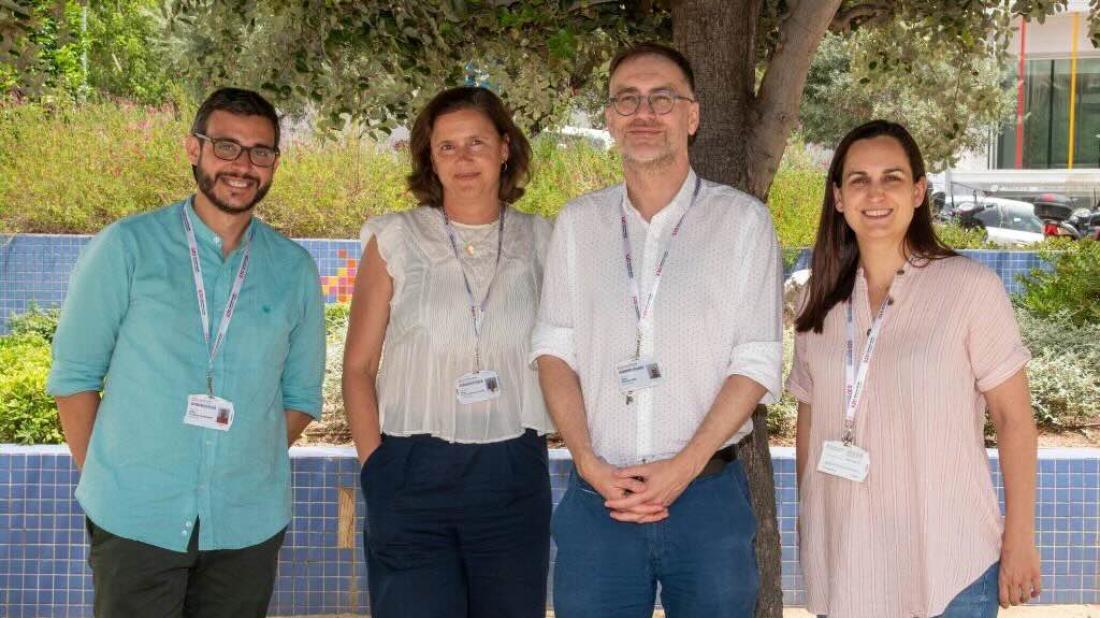
The SJD Barcelona Children's Hospital and the Virgen del Rocío University Hospital in Seville are participants in the study that has discovered this new disease
The SJD Barcelona Children's Hospital and the Virgen del Rocío University Hospital in Seville, and their respective research institutes (IRSJD and IBIS), have recently worked together on a research project that has led to the discovery of a new, rare disease linked to a mutation in the DOCK11 gene. The basic research phase of the study, led by the St. Anna Children's Cancer Research Institute, the Research Center for Molecular Medicine of the Austrian Academy of Sciences and the Medical University of Vienna, was recently published in the New England Journal of Medicine.
This new disease is caused by a defective DOCK11 gene, causing abnormalities in the cytoskeleton, the internal structure of cells that gives them their shape and ability to move. It manifests clinically as persistent inflammation, abnormal shape of blood cells and abnormal immune system regulation.
This all leads to various symptoms and involvement of several organs from a young age. In fact, one patient was initially attended by specialists from the Infectology, Rheumatology and Pediatric Immunology Department at the Virgen del Rocío University Hospital, who performed the initial genetic screening, anatomical pathology and functional tests.
“Their symptoms did not correlate to any known immunodeficiency or autoinflammatory disease, so we got in touch with Professor Kaan Boztug from the Austrian Academy of Sciences to find out whether they had records of any other patients in the world that could be in the same situation, to scrape together some kind of scientific evidence”, notes Olaf Neth, Head of the Infectology, Rheumatology and Pediatric Immunology Department at the Virgen del Rocío University Hospital.
“Despite such broad research and all of the tests that were done, we were unable to reach a solid diagnosis. It seemed like we were in a never-before-seen clinical situation. International collaboration was extremely important to progressing in the investigation, and the genetic and functional screenings confirmed our suspicion that the mutation detected in the DOCK11 gene could be related to the child’s clinical situation”, explains Dr Joan Calzada, from the Pediatric Rheumatology Department at the SJD Barcelona Children’s Hospital, and Researcher at the SJD Research Institute.
“The functional tests and biological models that were developed corroborated our suspicion that we were dealing with a new entity. Later, as patients started appearing in centres around the world with similar clinical pictures, and who also had mutations in the same gene, that was the final piece of the puzzle.” added Dr. Neth, from the Virgen del Rocío University Hospital.
Furthermore, it is important to recognise the valuable contribution of the Anatomical Pathology Department at the Virgen del Rocío University Hospital (Dr. Rainiero Ávila Polo and Dr. Rocío Cabrera-Pérez) when it came to genetic screenings, functional tests and other studies specified by the laboratories in Austria to continue with our patient study. “Thanks to this joint effort, it will now be possible to identify other patients with this rare disease and improve their diagnosis, and as a result, their treatment. Preventing the progression of the disease will prevent severe side-effects”, he added.
Dr Laia Alsina, Head of the Clinical Immunology and Allergology Department at the SJD Barcelona Children’s Hospital, researcher at the IRSJD and coordinator for the Clinical Immunology Integrated Unit between SJD Barcelona Children's Hospital and Hospital Clínic Barcelona, also highlights the importance of the collaboration between clinical teams and researchers. “It is important to give merit to the clinical side, as without that initial clinical suspicion that we were handling a new entity, we would not have started the subsequent studies.”
More patients with the same gene mutation
Genetic sequencing of this patient revealed a mutation in the DOCK11 gene, which is involved in regulating various cell functions and, until now, had not been associated with any human diseases.
Previous studies had demonstrated the importance of the protein produced by this gene in the development of B cells in mice. Research has now shown that, to a certain point, B cells do not develop properly in humans with a DOCK11 deficiency either. At the same time, other immune cells, called T-lymphocytes, are overactive, which explains the persistent inflammation. “This constant inflammation can lead to a build-up of the amyloid protein in tissues, causing amyloidosis,” adds Dr Laia Alsina.
A possible treatment with hematopoietic stem cell transplant
Although the function of the DOCK11 gene is not fully understood, researchers suspect that transplanting hematopoietic stem cells could be a viable therapeutic solution. It is also possible that DOCK11 deficiency could be treated with gene therapy. “However, these two options still have to be looked into, and there is a lot of research to be done. The most important thing is that identifying this new entity widens our scope of knowledge and allows us to diagnose patients with inflammatory diseases with unknown causes”, explains Dr Jordi Antón, Head of the Pediatric Rheumatology Department at the SJD Barcelona Children’s Hospital.
Dr Marison Camacho-Lovillo (coordinator of the Pediatric Rheumatology Department) and Dr Paula Sánchez Moreno, pediatricians from the Infectology, Rheumatology and Pediatric Immunology Department at the Virgen del Rocío University Hospital and authors of the study both also agree. “These four known cases so far in the world being published in an esteemed scientific journal opens doors for specialists everywhere to find the contacts and information they need to better attend new patients coming to our departments.”
Dr Joan Calzada adds that it is of the utmost importance in instances of rare diseases that physicians can count on the support and help from other leading healthcare centres, like with the SJD Barcelona Children's Hospital and the Virgen del Rocío University Hospital. “With undiagnosed diseases, it is very important that patients are attended by highly specialised professionals, and this is even more true in the case of rare diseases.”
